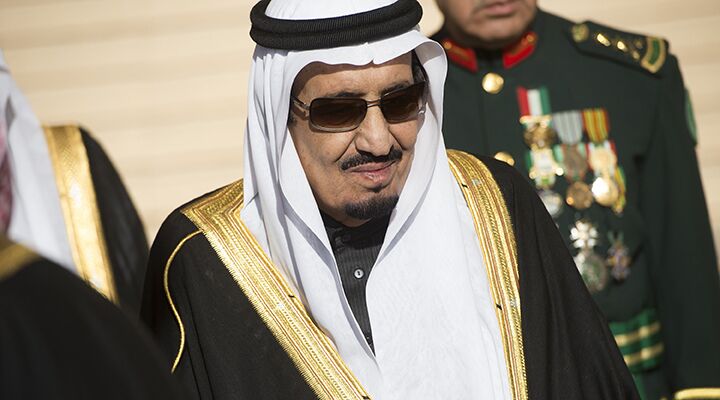
Saudi Arabia and Egypt Drift Apart
Saudi Arabia has a new king, and with him a new direction for the country. According to the Associated Press, Saudi Arabia is working to improve relations with Turkey while laying Egypt aside.
Saudi King Salman bin Abdulaziz al Saud has a starkly different idea from the previous Saudi leader—King Abdullah. While King Abdullah maintained a close relationship with Egypt, King Salman seems more interested in cultivating a closer relationship with Turkey, one of Egypt’s regional rivals.
In the past, Saudi Arabia has been a strong supporter of Egypt, offering political and financial support. And to a certain extent, it still is. But now Saudi Arabia feels increasingly threatened—by Iran.
Iran’s takeover of Yemen, its support for insurgent groups in Bahrain, its virtual takeover of Iraq, and the resilience of the Iranian puppet Syrian President Bashar Assad, have Saudi Arabia worried. And now with Saudi Arabia’s American allies indicating they could eventually accept a nuclear-armed Iran, the Saudis are more fearful than ever. Hence, Saudi Arabia is reaching out for new friends, even if such a move threatens to undermine its relationship with Egypt.
As AP reported, Saudi Arabia appears to be seeking a new alliance with Turkey to counter the growing Iranian empire.
Both the Saudis and Egyptians have historical grievances with the Turks. Both fought for independence from the Ottoman Empire, and neither want a return to Turkish hegemony. In recent years, relations between the two nations and the Turks have been strained. Prior to the Syrian civil war, Turkey’s efforts to develop a strategic alliance with Iran threatened the Saudis. Turkey’s support for the Muslim Brotherhood terrorist organization in Egypt infuriated Egypt’s ruling class.
But the war in Syria has dramatically changed things for Saudi Arabia. It now finds itself on the same side as the Turks.
Turkey is supporting Syrian rebel groups in an attempt to overthrow Assad and increase its influence in Syria. Saudi Arabia is fighting to overthrow Assad to destroy Iran’s most important regional ally. Iran, meanwhile, is doing everything possible to keep Assad in power. Egypt, wary of Turkish ambition and angry at the Turkish support for the Muslim Brotherhood, refuses to help in the war against Assad.
For the Saudis it seems that the old adage “the enemy of my enemy is my friend” is a truism. And they appear willing to offend their Egyptian allies in order to make a new alliance with Turkey. Such is the fear Saudi Arabia holds for Iran.
Egyptian President Abdel Fattah al-Sisi and Turkish President Recep Tayyip Erdoğan both visited Saudi Arabia during the first week of March. Each met with King Salman separately. Afterward, Erdoğan told reporters that Saudi Arabia, Turkey and Egypt all need to work together for the good of the region. His comments contrasted with Sisi who, alluding to the Brotherhood and its backers in Turkey, said, “I want to tell our brothers in Saudi Arabia who are listening to us: Imagine someone is trying to destroy a nation of 90 million people. What do you think is people’s reaction?”
A closer relationship between Saudi Arabia and Turkey seems almost absurd considering Turkey’s oppression of Arabs for centuries up till the lead-up to World War i. However, an alliance with Turkey is in the making. Meanwhile Saudi Arabia’s relationship with Egypt is bound to cool. To understand more about these trends, read “A Mysterious Alliance” and “Enemies and Allies.”
